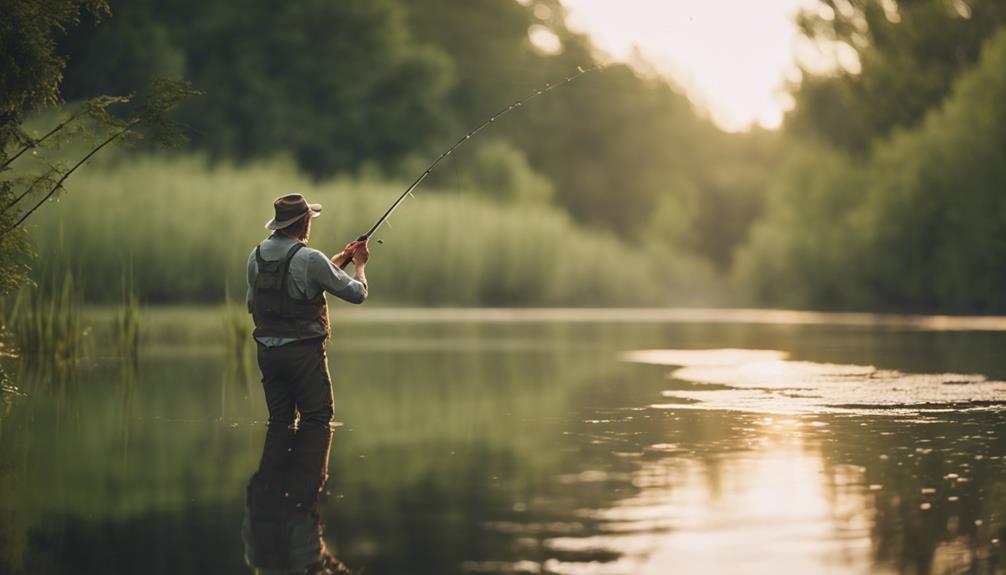Fishing is a beloved pastime that brings relaxation, excitement, and a connection to nature. Whether you’re a seasoned angler or a curious beginner, knowing what fishing licence you need is crucial for a successful and legal fishing experience. In this guide, we will break down the types of fishing licences available, the requirements for obtaining one, and the regulations you need to be aware of.
Understanding the Importance of a Fishing Licence
Before we dive into the specifics of what fishing licence you need, it’s essential to understand why a fishing licence is necessary. Fishing licences are implemented by wildlife and fisheries agencies to regulate fishing activities, protect aquatic ecosystems, and ensure sustainable fish populations. By obtaining a fishing licence, you contribute to conservation efforts and help maintain the balance of marine and freshwater environments.
Types of Fishing Licences Available
When it comes to fishing licences, there are typically two main categories: freshwater and saltwater licences. Freshwater licences are required for fishing in lakes, rivers, and streams, while saltwater licences are needed for fishing in oceans and coastal areas. Some regions may also offer a combination licence that allows you to fish in both environments. Additionally, there may be special licences for specific species, such as trout or salmon, depending on the local regulations.
Age and Residency Requirements
Most states and countries have specific age and residency requirements for obtaining a fishing licence. Generally, minors may be required to have a parent or guardian sign the application, while some regions offer discounted rates for children or seniors. Additionally, there are often different rules for residents and non-residents, so it’s vital to check the regulations specific to your area. For example, if you’re planning to fish while on vacation, you may need to obtain a non-resident licence.
How to Obtain a Fishing Licence
Obtaining a fishing licence is usually a straightforward process. Most regions allow you to apply online, at designated retailers, or through local wildlife agencies. When applying, you will typically need to provide personal information, proof of residency, and payment for the licence fee. In some cases, you may also need to complete a fishing education course, especially for first-time anglers. Be sure to keep your licence with you while fishing, as you may be required to show it during inspections.
The Cost of a Fishing Licence
The cost of a fishing licence can vary significantly depending on your location, the type of licence, and whether you are a resident or non-resident. Generally, freshwater licences tend to be less expensive than saltwater ones, and annual licences are typically more cost-effective than short-term permits. Some areas may also offer discounted rates for seniors, military personnel, or students. Keep in mind that licence fees often contribute to local conservation efforts, so your investment helps protect the fishing environment for future generations.
Understanding Fishing Regulations
In addition to knowing what fishing licence you need, it’s essential to familiarize yourself with local fishing regulations. These regulations can include restrictions on fishing seasons, size and bag limits for specific species, and designated fishing areas. Ignoring these rules can result in fines or penalties, so it’s crucial to stay informed. Most wildlife agencies provide resources and guides to help anglers understand the regulations in their area. Always check for updates before heading out, as rules can change seasonally.
Special Permits and Exceptions
In some cases, you may need additional permits for specialized fishing activities, such as ice fishing, bowfishing, or fishing in designated conservation areas. Additionally, some states offer free fishing days where residents can fish without a licence. These events are great opportunities for newcomers to experience fishing without the initial commitment. Always check with your local wildlife agency for any special permits or exemptions that might apply to your fishing plans.
Conclusion: Enjoying Fishing Responsibly
Understanding what fishing licence you need is an essential step for any angler. By obtaining the proper licence, adhering to regulations, and respecting the aquatic environment, you not only enhance your fishing experience but also contribute to the sustainability of fish populations. Remember that fishing is not just about catching fish; it’s about enjoying the great outdoors and preserving it for future generations. So grab your fishing gear, secure your licence, and get ready for an adventure on the water!
By following this guide, you will be well on your way to enjoying a fulfilling fishing experience, fully equipped with the knowledge of what fishing licence you need. Happy fishing!
